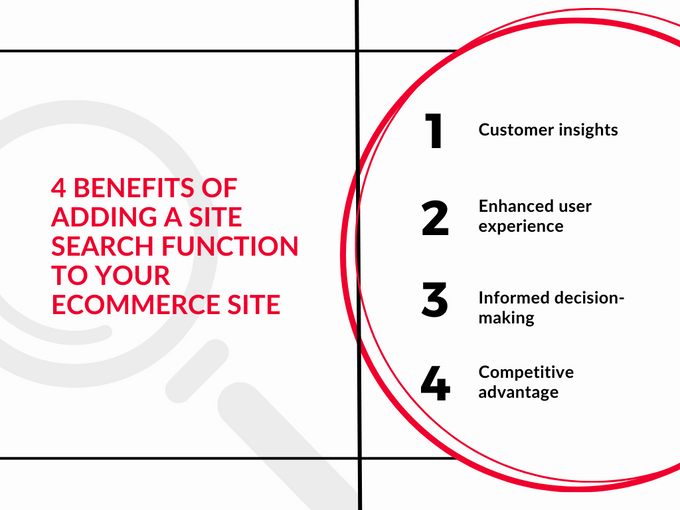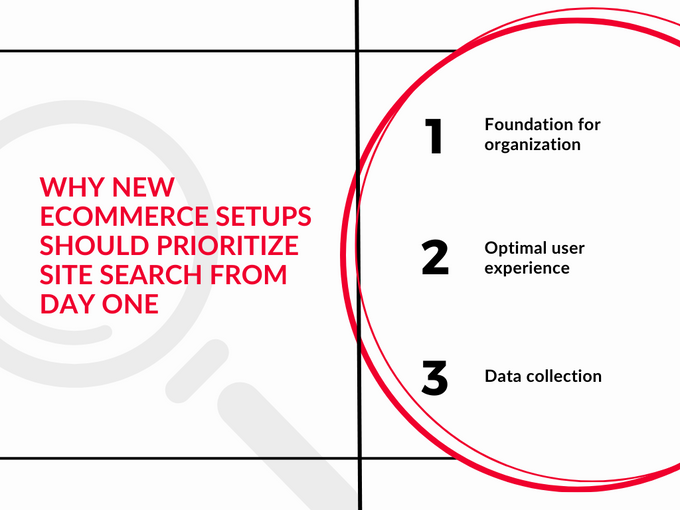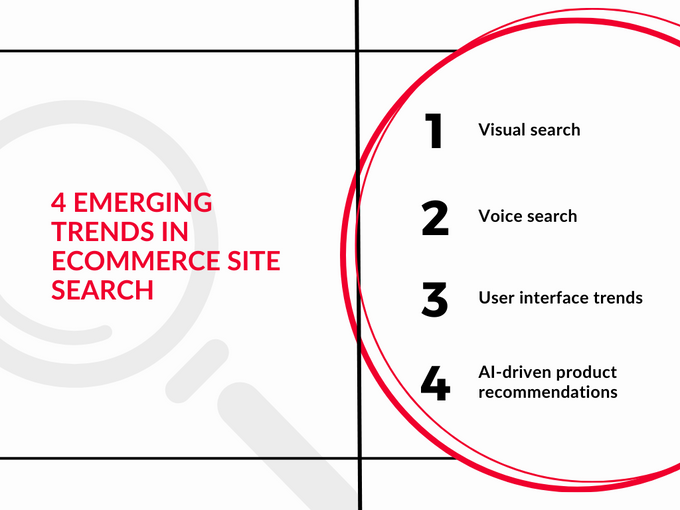How Important Are Site Search Engines for eCommerce Websites?
Unlock the power of site search engines for your eCommerce business and gain valuable customer insights, enhanced user experience, and competitive advantage!
Updated November 19, 2024

Site search engines are the unsung heroes of eCommerce, offering more than just convenience. They're key to understanding customer behavior, enhancing user experiences, and gaining a competitive edge.
However, according to a Baynard study, a whopping "42% of sites fail to fully support 8 key search query types". Better eCommerce search optimization is needed. Keep reading to find out why an on-site search engine is vital for your eCommerce site.
Meet the Expert
Jameela Ghann is a seasoned online store owner with over a decade of eCommerce experience. Apart from running Alora Boutique, she's also the marketing manager for Fera Product Reviews.
4 Benefits of Adding a Site Search Function to Your eCommerce Site
Site search engines play a pivotal role in the success of eCommerce websites and offer you various benefits, including:
- Customer Insights Site search allows you to tap into valuable customer insights. When users utilize the search function, they're essentially telling you precisely what they're looking for and the specific terms they're using. This provides deep insights into customer preferences and needs, which in turn can help you optimize other endeavors like personalization.
- Enhanced User Experience An effective site search engine enhances the overall user experience. It enables customers to find products quickly and easily, reducing friction in the buying process. This improved user experience can directly translate into increased sales and higher conversion rates.
- Informed Decision-Making Site search data provides valuable information about customer behavior and preferences. It can reveal trending products, which can inform your marketing and merchandising strategies.
- Competitive Advantage Surprisingly, not all eCommerce stores offer robust site search functionality. By implementing an effective site search engine, you can gain a competitive advantage in the market, attracting customers who value the ease of finding products on your website.
Why New eCommerce Setups Should Prioritize Site Search From Day One
When launching a new eCommerce venture, prioritizing site search from the very beginning is not just a suggestion—it's a strategic imperative. Here's why:
- Foundation for Organization Building your eCommerce site with a robust site search function in mind sets the stage for effective organization. This includes naming products, applying relevant tags, and creating logical categories. These seemingly small details play a pivotal role in ensuring that your site search engine can accurately find and present products to users.
- Optimal User Experience An intuitive and efficient site search enhances the user experience right from the start. When products are well-organized and searchable, visitors can easily find what they're looking for. This not only keeps them engaged but also increases the likelihood of conversions.
- Data Collection Implementing site search early allows you to collect valuable data on customer behavior and preferences from day one. Understanding what users search for and how they interact with your site can inform critical business decisions and strategies as you grow.
» Not sure how to choose a search function for your store? Consider these factors
How eCommerce Site Search Influences User Retention and Repeat Purchases
Site search functionality plays a pivotal role in influencing user attention and repeat purchases on eCommerce websites. Let's delve into how it shapes these critical aspects:
- Enhancing User Retention User retention is closely tied to the shopping experience. When customers find what they're looking for quickly and effortlessly, they're more likely to return to your site.
- Personalization for Repeat Business Advanced site search capabilities can provide personalized product recommendations based on users' past searches and purchases. While some may have concerns about data privacy, many consumers appreciate tailored recommendations as it makes them feel valued and understood.
- Building Trust and Loyalty User-friendly and convenient site search builds trust and fosters loyalty. When customers consistently have a hassle-free experience on your website, it instills confidence in your brand. Trust is often underestimated but plays a pivotal role in encouraging repeat purchases. As long as you maintain a positive shopping experience, customers are likely to return.
- Increasing Average Order Value Site search can also be leveraged to boost the average order value. By offering upselling and cross-selling opportunities within search results, such as suggesting compatible accessories or complementary products, you can encourage customers to add more items to their carts. This not only enhances the shopping experience but also contributes to higher revenues.
» Avoid a "no search results found" page: Try these troubleshooting tips
4 Emerging Trends in eCommerce Site Search
Here are some bonus tips and industry trends to keep an eye on to make sure you stay ahead of the eCommerce game:
1. Visual Search
Visual search is gaining momentum and can significantly enhance the user experience. Consider integrating a visual search feature into your site, allowing users to search for products by uploading images or taking photos. This trend is particularly relevant for businesses in fashion and beauty.
2. Voice Search
With voice assistants like Google Assistant and Alexa becoming increasingly popular, voice search is on the rise. Keep an eye on this trend and ensure that your site is optimized for voice search queries.
» Find out how voice search is changing SEO
3. User Interface Trends
Pay attention to how consumers interact with search engines, especially on platforms like Google. These trends often find their way into eCommerce search. Understanding how people search and adapting your site's user interface to match these expectations can improve user satisfaction and engagement.
4. AI-Driven Product Recommendations
While AI has been discussed in-depth everywhere online, it remains a significant trend. Utilizing AI to provide personalized product recommendations based on user behavior can significantly boost sales and customer satisfaction.
On-Site Search: A Key Player in eCommerce Success Stories
Site search engines are indispensable for eCommerce success. They offer valuable customer insights, enhance user experiences, boost conversion rates, and provide a competitive edge.
Prioritizing site search from the outset ensures efficient organization and data-driven decision-making. It influences user retention and repeat purchases by offering convenience, personalization, and trust.
Moreover, staying updated with emerging trends, such as visual and voice search, user interface improvements, and AI-driven recommendations, can keep your eCommerce business ahead in the dynamic world of site search.
» Have Magento or BigCommerce stores? Explore your Magento Search and BigCommerce Search options







